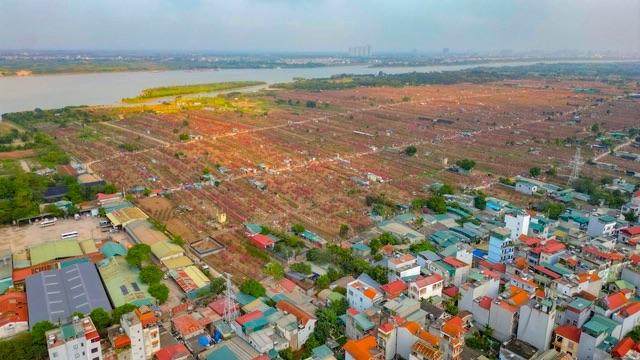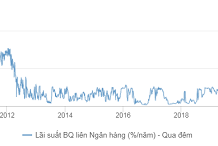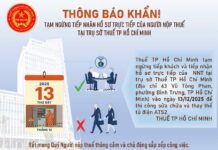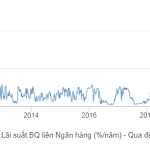LTS: TS. Cấn Văn Lực and the Author Team of Training and Research Institute BIDV have just announced a quick assessment report on the Impact of the Amended Land Law (2024) and made recommendations. We would like to post the full text of the report for readers to follow conveniently.
General evaluation
On 16 June 2022, the 5th National Party Congress of the 13th term issued Resolution No. 18/NQ-TW on “Continuing to innovate, improve the mechanism, policies, enhance the effectiveness and efficiency of land management and use, creating motivation to turn our country into a developed country with high income”. In which, the Resolution set out 11 important directions on land policy, specifically as follows: (i) Innovation and improvement of land planning quality, land use planning; (ii) Refinement of regulations on land allocation, land lease, land use conversion; (iii) Refinement of regulations on compensation, support, resettlement, land recovery for national defense and security purposes; development of national interests, public interests; (iv) Improvement of land pricing mechanism, land finance, abolishing land price frame; (v) Refinement of related regulations on real estate market, including land use rights market; (vi) Clear regulations on land recovery, compensation, resettlement support (must complete resettlement arrangement before land recovery, “better”); (vii) Refinement of mechanisms, policies on management, land use for agriculture; (viii) Development of legal regulations on multi-purpose land management and use; (ix) Strengthen administrative reform, digital transformation and enhance state land management capacity; (x) Enhance non-cash payment implementation in land use rights and real estate transactions; build real estate market information system, land information, and (xi) Innovation, strengthening of inspection, examination, supervision, handling of violations; resolution of disputes, complaints, accusations related to land.
On January 18, 2024, the Land Law (amended) 2024 was passed by the National Assembly with 16 chapters, 260 articles, 214 pages (an increase of 2 chapters and 48 articles compared to the Land Law 2013), with many new important points, institutionalizing the principles and orientations of Resolution No. 18/NQ-TW dated June 16, 2022, while ensuring consistency and harmony with the Housing Law 2023, the Real Estate Business Law 2023 (passed by the National Assembly in late November 2023).
This is a very important Law project, related to all aspects of political, economic-society, culture, national defense, security; affecting most subjects in the economy. The Land Law (amended) along with the Housing Law, the Real Estate Business Law (all effective from January 1, 2025) represents a major step in perfecting the mechanism, promoting the land and real estate market of Vietnam to develop in a healthy, transparent and sustainable manner; new perspectives and breakthroughs will contribute to effectively exploring land resources towards sustainable, comprehensive economic and social development.

Ten (10) new points of the Land Law and their impact on the people, businesses, and the economy
First, land valuation based on market principles: The amended Land Law will abandon the land price frame (currently issued every 5 years), replace it with an annual land price list starting from January 1, 2026; standardize 4 land valuation methods including: (i) Comparison method; (ii) Income method; (iii) Surplus method; (iv) Land price adjustment coefficient method; at the same time, determine clearly the national land database, the national basis for land price as priority information sources for land valuation.
This is an important new point, creating conditions for land valuation to be closer to the market price, removing long-standing issues in determining land prices (especially the two-price phenomenon), providing a basis for various purposes such as compensation implementation, land clearance, financial obligations to the State, determining real estate prices, calculating project investment costs-effectiveness, clearly defining the responsibilities of related parties… etc. However, for businesses and investors, the application of land price lists closer to the market price might increase land use costs. At the same time, the annual land price list will also increase pressure on human resources, technology and responsibilities to localities. Therefore, it is very important to provide appropriate, feasible and timely implementation guidance and monitoring, which needs to identify clearly sources of information, land data, prioritizing, determining land prices, providing land information, land data, etc.
Second, expanding the scope of land use, increasing opportunities to access and use land resources more effectively: Vietnamese nationals settling abroad are officially land users and are entitled to relatively full rights as Vietnamese citizens (except for mortgage rights, which are limited to mortgages at credit institutions operating in Vietnam); at the same time, addition of some rights for foreign-invested economic organizations, Vietnamese origin individuals who settle abroad such as being able to transfer, sublet land use rights in industrial zones (IZs), high-tech zones; encouraged to invest in infrastructure in high-tech zones and for scientific and technological development purposes…etc.
This is an important step in amending the land law, ensuring integration with the amended Real Estate Business Law, amended Residential Law, contributing to increasing access opportunities, ownership, and more effective use of land resources, at the same time contributing to attracting remittances and investment of overseas Vietnamese for the development of real estate business and the economy.
Third, expanding the limit for receiving agricultural land use rights transfer, allowing accumulation of land: the limit for receiving the transfer of agricultural land use rights is expanded up to 15 times the limit of agricultural land allocation for individuals for each type of land; allowing accumulation, concentration of agricultural land through conversion, transfer, capital contribution, lease, land use right business cooperation. The State encourages organizations, individuals to apply high technology in order to use accumulated land resources effectively, contributing to efficient and sustainable agricultural development as well as rural construction strategic objectives.
Fourth, clearly stipulating land recovery cases associated with compensation, support, resettlement guarantees: The amended Land Law stipulates that land will only be recovered in cases where it is truly necessary for national interests, public interests (31 cases, plus other “sweeping” provisions will be decided by the National Assembly according to the simplified process and procedures), at the same time, the Law also clearly stipulates the responsibilities to complete the approval and resettlement arrangement before land recovery, ensuring that people whose land is recovered have at least equal or better living conditions (housing, employment, income…).
This regulation contributes to institutionalize the spirit of Resolution 18/NQ-TW (2022), ensuring transparency, publicity, and overcoming rampant land recovery, limiting negatives, and violations in practice; at the same time, promoting the mechanism of agreed-upon arrangements on land use rights between investors and land users (with expected land prices closer to the market) will meet the practical needs of people and businesses for housing, business development. For real estate projects that have synchronization in technical and social infrastructure, large-scale land recovery support by the State will create conditions for businesses (especially businesses with strong financial resources and experience) to invest in these types of real estate, thereby contributing to improving investment efficiency and raising the quality of social life (especially in rural areas, mountainous areas, slow urbanization areas, underdeveloped infrastructure). Along with that, some obstacles such as cases that only achieve about 80% agreement, it is hoped that they will be resolved in the form of appropriate support and assistance from the State, or the provision that the land type for commercial housing projects must be residential or residential and other types of land will be piloted when implementing this new land law.
Fifth, allowing flexible payment of land lease at once or annually:
Article 30 of the Land Law 2024 stipulates that individuals, businesses who are allocated land, leased land can flexibly choose to pay land rent at once or annually…etc. This is a favorable condition, providing flexibility in capital allocation for individuals, businesses when implementing investment projects. For real estate projects (mixed-use urban areas, rural residential areas, renovation projects, urban regeneration; industrial zone real estate, tourism real estate, office real estate, social housing, accommodation for workers in industrial zones, housing for armed forces…), paying land rent annually can be expected to help reduce initial investment costs; thereby contributing to reducing house prices and positively affecting the demand for real estate.
The flexibility in allocating land costs combined with financial incentives (land rent) and capital sources for projects with low commercial value such as social housing, worker accommodation in industrial zones, housing for armed forces… are important and necessary conditions to address housing issues for low-income groups and ensure social security. However, paying annually can also be risky for property buyers and the State Treasury if the investor goes bankrupt or becomes unable to pay. In addition, the sustainability and feasibility of funding for affordable housing appropriate to the pocket, social housing also need to be calculated in the long run.
Sixth, specify planning stages and enhance decentralization of state land management: Planning and land use plans at all levels will be prepared concurrently; higher-level planning can be approved in advance or concurrently, ensuring coherence and shortening the time in the land planning process. Strengthen decentralization of land management authority in the direction of increasing the proactivity of provincial People’s Committees and People’s Councils in approving planning; issuing land prices; issuing land use right certificates, project lists, auctioned land area, bidding; issuing criteria for decision on bidding implementation, land recovery projects, resettlement projects, compensation for people with recovered land; reducing administrative procedures, reducing intermediaries in land allocation, land lease in economic zones, hi-tech zones, airports; enhancing the role of land development fund in establishing, developing, managing, exploiting land fund in localities, serving socio-economic development, increasing state revenue, exploiting land resources more effectively…etc.
However, it is still necessary to provide clear guidance, regulations on the operation model, financial mobilization mechanism, coordination mechanism of the Land Development Organization with other functional agencies at the central and local levels. Decentralization needs to be linked with the capacity of the organization to implement and monitor later.
Seventh, specify land information, land data, and the responsibility to build, manage, operate, exploit the national land information, data system: The national land information system (especially the national land data) is important input information, accurate basis for land valuation; the management, exploitation, and guarantee of connectivity with the national land information, data system with the land and real estate market will create conditions for the development of online public services and e-transactions on land, ensuring the safe and effective exploitation of land data by businesses, people.
Eighth, supplement business conditions and sanctions to increase the effectiveness of the amended Land Law: rigorous conditions when implementing land use rights mortgage (must have land use right certificates, no disputes, not subject to enforcement measures, not late in fulfilling financial obligations, within the land use period, not subject to emergency measures, sealing at the request of management agencies, other credit institutions) and land use right transfer (must return the exempted, reduced amount; individuals who do not directly engage in agricultural production receiving transferred land for rice cultivation over the limit must establish businesses ….). At the same time, there are additional sanctions such as additional land use fees, land rent for projects that do not/delay putting the land into use, land recovery if financial obligations are not fulfilled… and prohibited acts such as violations of land policies for ethnic minority people; unregistered transactions with the competent authority; failure to provide information/providing inaccurate, untimely information…etc.
Stricter regulations in the land sector will contribute to limiting violations, avoiding negative effects while enjoying State incentives, ensuring transparency, soundness, and sustainability for the land and real estate market, and contributing to improving credit quality and minimizing risks for the banking system when developing real estate credit.
Nine, flexible transition regulations contribute to removing difficulties, obstacles for individuals, organizations in land exploitation, use: in terms of planning, land use plans (already approved plans for 2021-2030 will continue until the end of the planning period); compensation support, resettlement when land is recovered (prioritize application of higher resettlement land price, more favorable for affected people); land allocation, land lease, land use conversion (only need to lease land for agricultural land exceeding the limit; projects that have been approved for investment are allocated land without auctions or tenders; those that have received project transfers in economic zones, high-tech zones before July 1, 2014, will continue to use the land without leases); land use right certificates (the State is responsible for issuing land use right certificates for all individuals; old certificates remain valid); land finance (current land price list will continue to apply until December 31, 2025; land price list will be adjusted to match the actual situation).
Ten, early efficacy of certain provisions and assign the Government to issue more detailed regulations to increase the effectiveness of implementation: The Law allows the application from April 1, 2024 (8 months earlier than the general effect) of some important provisions of the Land Law such as land valuation; land use to implement reclamation activities (Article 190) at the same time, projects that have been approved for investment decisions before the effective date of the amended land law can continue without auctions or tenders; forest land use planning, switching management suitable for the provisions of the Forestry Law, contributing to the preservation of natural forests (Article 248). The issuance of specific, detailed Government regulations on about 65 provisions of the Law (including many decrees, circulars being prepared, and soon to be issued such as decree on land price, decree on reclamation…) will help the Law come into life early, fully, closely and effectively implement.

Six recommendations
– The first is that the Government should direct the construction and issuance of Decrees, Circulars to provide unified, consistent guidance between the Land Law, the Housing Law, the amended Real Estate Business Law along with other related laws (to overcome overlapping, obstacles, ensure enforcement effectiveness…), Decree on land information, data development, and other documents to guide detailed methods for land valuation and input information (with priority order of use) to determine more scientific land prices, consistent with international practices and Vietnamese realities.
– The second is, we should soon issue Pilot scheme on implementing commercial housing projects through agreements on land use rights or projects with other land use rights (not residential land) and implement the pilot in some provinces and centrally-run cities… to continue to promptly resolve difficulties, obstacles for real estate projects (especially commercial housing projects).
– Third, emphasis should be placed on issues related to digitization and applying information technology in land management, use suitable for current and new digital trends, and ensure effective land management work, feasibility. In which, it is necessary to be determined to build, improve the national land information system, combined with increasing the capacity of land management agencies.
– Fourth, we should consider issuing Decree guiding the operation of land development fund on the operating model, financial mobilization mechanism, coordination mechanism of land development fund with other central and local agencies (financial sources can be stipulated at least 10% from the local budget as a financial source for the land development fund to ensure its flexibility, more suitable for localities).
– Fifth, regarding land for tourism projects: Tourism projects are not included in the cases of preferential land recovery as prescribed in the amended Land Law, although there are scattered regulations about land for cultural tourism, spiritual tourism, religious tourism, sports tourism, entertainment tourism…etc. However, to be able to develop tourism into a spearhead economic sector, making a significant contribution to socio-economic development, it is possible to consider and research Pilot scheme on land support for tourism projects with specific conditions, criteria such as large scale, high total investment (for example, from 100 hectares and above), in line with the planning specified in the Tourism Law 2017; meet criteria for responsible and sustainable tourism…etc… Removing legal bottlenecks, freeing up space for important tourism projects, contributing to the creation of large-scale tourist and entertainment areas such as Disneyland, Marina Bay, Sentosa – these types of tourism and services are types of tourism that Vietnam needs and has potential for development.
– Sixth, enhance the dissemination and popularization of the laws that have been issued (especially the Land Law, the Residential Law, the amended Real Estate Business Law, the amended enterprise law…), clarify the new and notable points as well as clarify the points that still need further guidance, complete and specific guidance should be fuller, more detailed for the people, organizations, and related parties to fully understand, properly implement to avoid violations and negative phenomena, increase the effectiveness of enforcement in practice.

































